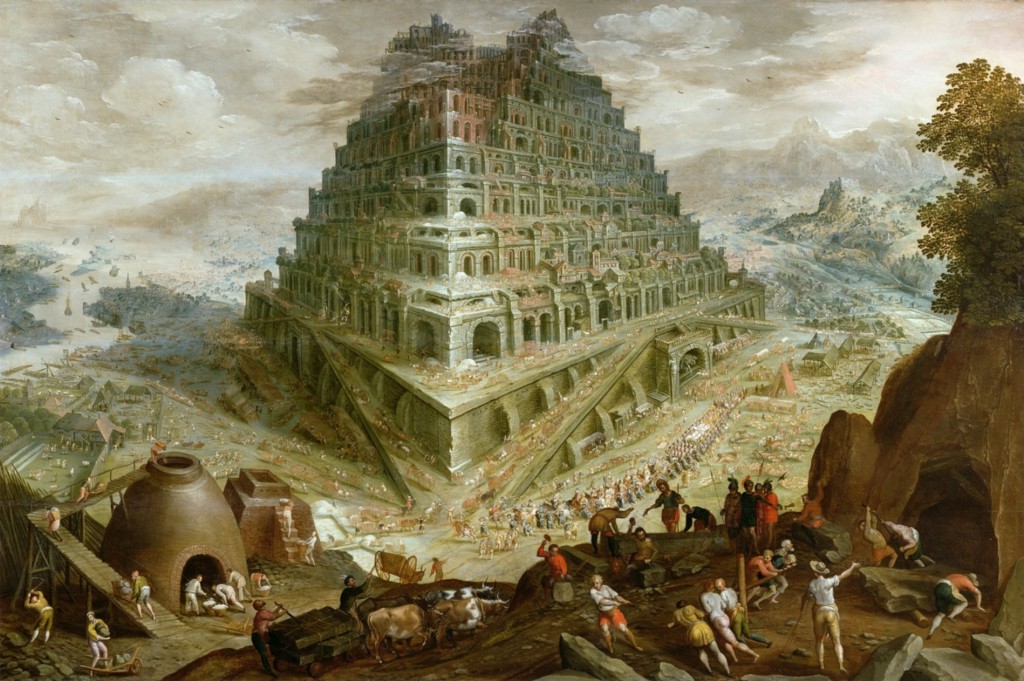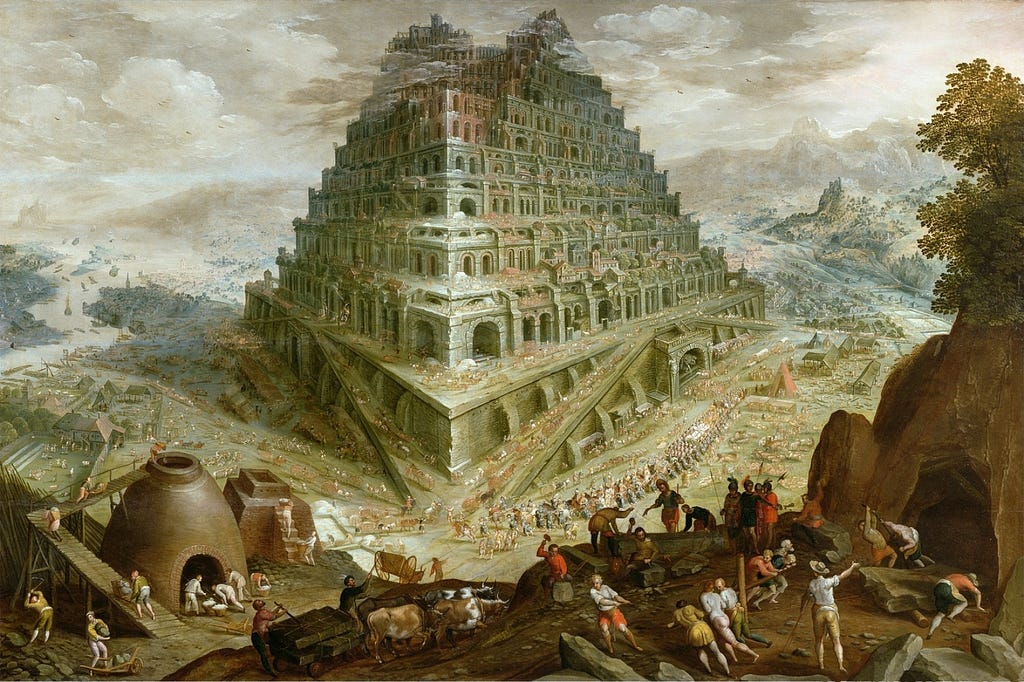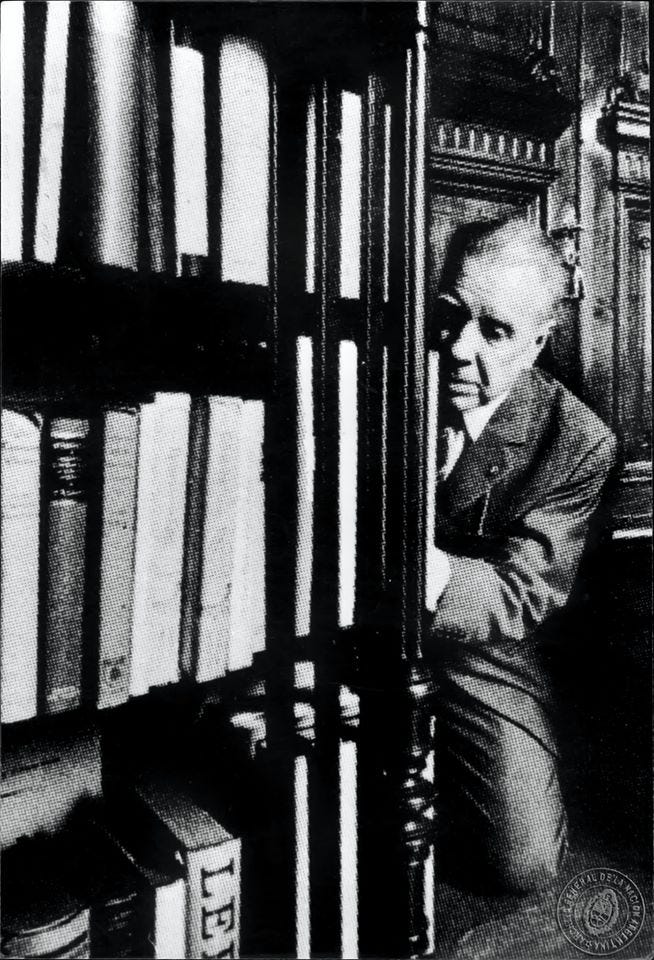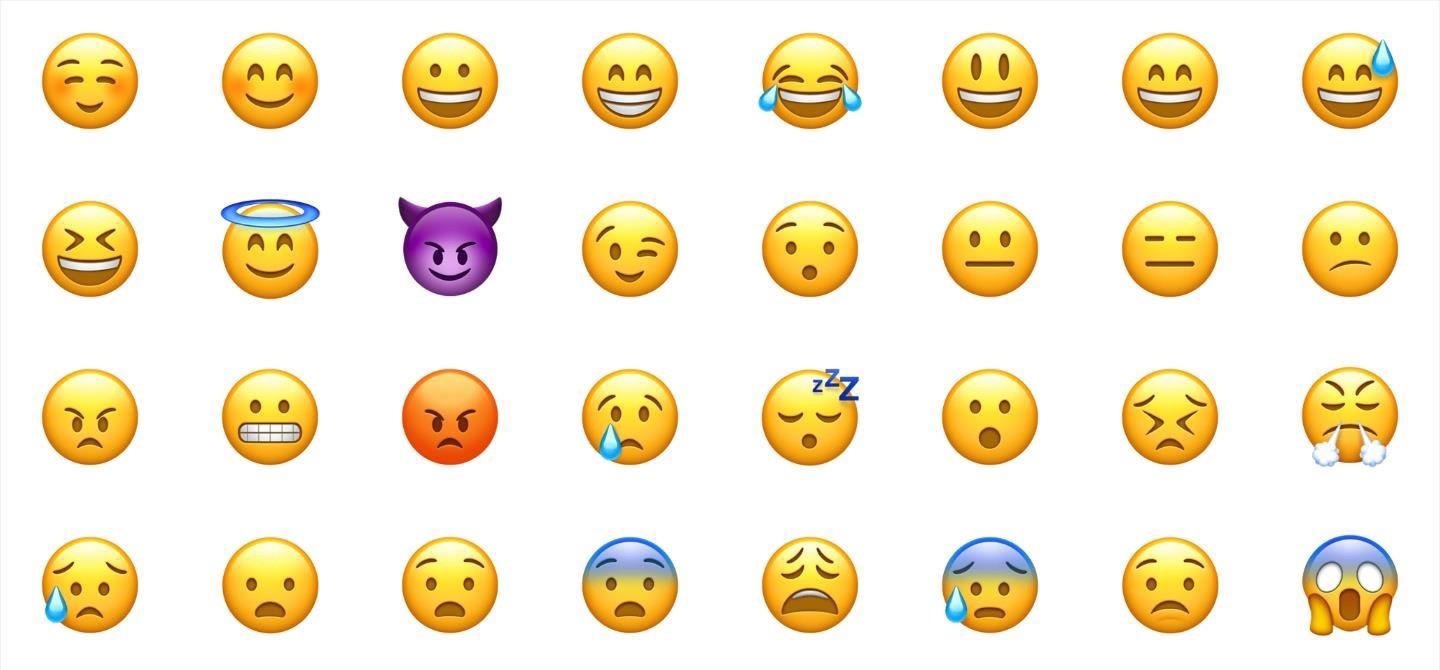Craft
Putting Borges’ Infinite Library On the Internet
The creation of libraryofbabel.info

they used brick for stone…they used tar for mortar
-Genesis, 11:3

Jorge Luis Borges, when he published “The Library of Babel” in 1941, denied his own originality. In the introduction to The Garden of Branching Paths, the collection containing the story, he wrote, “Nor am I the first author of the tale ‘The Library of Babel,’” and referred his readers to an earlier essay that traced the total library back to the Ancient Greek atomists. Borges’ short story imagined a vast universe-as-library, thought by its inhabitants to contain every possible 410-page permutation of a basic character set, enough to express some version of every work ever written, and everything that ever could be. Borges found this idea of language as a purely combinatorial process in a short story by German proto-science fiction author Kurd Lasswitz, who could have found it in Lewis Carroll, Cicero, or Aristotle. When I created libraryofbabel.info, an online version of Borges’ dream or nightmare, I was another link in this chain, a conduit for a self-repeating idea.
When I created an online version of Borges’ dream or nightmare, I was another link in this chain, a conduit for a self-repeating idea.
Of course, Borges smiled to himself as he denied authorship of his story, because “The Library of Babel” is a demonstration of the impossibility of originality. For the librarians who inhabit his creation, the difference between invention and discovery has been effaced; the value of novelty that drives our art markets is unintelligible to them, as they live in a world where everything has been written, and they hope only to find, catalogue, or perhaps repeat those divinely ordained texts. The very act of writing appears absurd to them: “A blasphemous sect suggested that the searches should cease and that all men should juggle letters and symbols until they constructed, by an improbable gift of chance, these canonical books.” Whether we encounter the universal library as a philosopher’s thought experiment, a short story, or a website, it can have the effect of carrying us toward this realization, that language unmoors itself from the confines of reason. When we imagine our words, our letters, created by a combinatorial algorithm, occurring by chance in the pages of an arbitrary book or as the output of a thoughtless program, we should recognize that our own intentions never placed any constraints on the signification of our language. I would emphatically distinguish libraryofbabel.info from any artificial intelligence, which is capable of recreating language in a context similar to its rational use. Babel is all expression in its most irrational, decontextualized form; I prefer to think of it as artificial unintelligence.
Seen from this vantage, language doesn’t lose meaning, but gains an infinite signifiability. Borges’ narrator describes the limitless potential of his library’s texts:
In truth, the Library includes all verbal structures, all variations permitted by the twenty-five orthographical symbols, but not a single example of absolute nonsense. It is useless to observe that the best volume of the many hexagons under my administration is entitled The Combed Thunderclap and another The Plaster Cramp and another Axaxaxas mlö. These phrases, at first glance incoherent, can no doubt be justified in a cryptographical or allegorical manner; such a justification is verbal and, ex hypothesi, already figures in the Library. I cannot combine some characters
dhcmrlchtdj
which the divine Library has not foreseen and which in one of its secret tongues do not contain a terrible meaning. No one can articulate a syllable which is not filled with tenderness and fear, which is not, in one of these languages, the powerful name of a god.
Every random string of characters can be a code for any other, which may in turn be an esoteric allegory for some hidden meaning, or an ironic meaninglessness. I’ve noticed from living in the world of Borges’ story that even the simplest turns of phrase can endlessly reveal new facets, unforeseen thoughts.
Even the simplest turns of phrase can endlessly reveal new facets, unforeseen thoughts.
For instance, it was a long time before I gave careful thought to the title of Borges’ story. Why Babel? “The Library of Babel,” not the story but the name, stands as any title must in a liminal position relative to the text. The narrative is framed as though it were written by a librarian inside the story’s universe, inside the Library of Babel, though the title may very well come from the unnamed editor who occasionally interpolates footnotes or diacritics. The phrase is never repeated within the story, and so the title seems to split Borges’ tale, to suggest simultaneously that the narrative could name itself or that this name could fall upon it from outside, as though from a jealous God. These are the two possibilities of language considered in the namesake biblical tale, where a human race that hoped to name itself is overwhelmed by a proliferation of tongues fallen from heaven.

The account of the Tower of Babel, as all the stories of Genesis, is evocative and vague. The descendants of Noah who now populate the earth state their intentions with a simplicity that belies their abyssal profundity, “Come, let us build ourselves a city, and a tower whose top is in the heavens; let us make a name for ourselves, lest we be scattered abroad over the face of the whole earth.” What is that, to make a name for oneself? And how does it prevent dissemination? The word for name, the name of name, in Hebrew is shem, which happens to be identical to the name of the tribe that sets out to impose unity on the human race by enclosing them within a single structure.
God punishes them for their hubris by creating the multiplicity of languages, thus scattering the Shem over the earth. In the process, he imposes a name on their unfinished city, the name of Babel. “Therefore it was called Babel, because there the Lord confused [balal] the language of all the earth.” This word is both a proper noun and a homophone for the Hebrew word for confusion (babble comes close to reproducing this effect in English, though it is an unrelated word thought to be onomatopoetic in origin). The struggle between human and God is a conflict over the control of language, a struggle between name and confusion.

Derrida captures the resulting paradox in his “Des Tours de Babel,” “[God] at the same time imposes and forbids translation.” With the irruption of linguistic difference, it becomes necessary for humankind to translate among themselves. But the very act creates a name that is untranslatable because of its inner difference. Babel, being both proper and common noun, cannot be translated by a single word. In fact, it demonstrates the diversity within any no-longer-single language, as the listener must recognize the possibilities of this word and substitute its dual meanings to understand it in its own tongue. The aspiration of the Shem, not only to build a unified structure but to unite themselves under a unified name, is shown by God to be impossible not for circumstantial reasons (the interrupted construction), but due to essence of language.
Borges was fascinated by the history of attempts to control the fragmentation of language. One of his most famous non-fiction essays, “John Wilkins’ Analytical Language,” considers the efforts of one man who hoped to make a name, or all names, for himself in this way. Wilkins constructed a formal language on the principle that knowing its words we would know all the things named, and knowing the thing would bring immediate knowledge of the name. It worked as follows:
He divided the universe into forty categories or classes, which were then subdivided into differences, and subdivided in turn into species. To each class he assigned a monosyllable of two letters; to each difference, a consonant; to each species, a vowel. For example, de means element; deb, the first of the elements, fire; deba, a portion of the element of fire, a flame.
Borges explains the problem that haunts any such project: “…there is no classification of the universe that is not arbitrary and speculative. The reason is quite simple: we do not know what the universe is.” Only a being with absolute knowledge, only a God, would know where to make the divisions, how to apportion names so that they captured exactly the essence of their referents. The efforts of John Wilkins, and the rest of us here-below, can serve no better than the Chinese Encyclopedia imagined by Borges:
In its distant pages it is written that animals are divided into (a) those that belong to the emperor; (b) embalmed ones; (c) those that are trained; (d) suckling pigs; (e) mermaids; (f) fabulous ones; (g) stray dogs; (h) those that are included in this classification; (i) those that tremble as if they were mad; (j) innumerable ones; (k) those drawn with a very fine camel’s-hair brush; (1) etcetera; (m) those that have just broken the flower vase; (n) those that at a distance resemble flies.
Nor does Borges see this confusion, this Babel, as a conditional failing of a fallen but perfectible humanity. Rather, “there is no universe in the organic, unifying sense of that ambitious word.” Those who would make names for themselves, like Wilkins or the Shem, will find their efforts thwarted by a language that is faithful to reality in its fractured convolution.

In the Babel imagined by Borges, the confusion of tongues takes place inside the tower, the library. The unified architecture does not create a unified linguistic community: “…the most ancient men, the first librarians, used a language quite different from the one we now speak; it is true that a few miles to the right the tongue is dialectical and that ninety floors farther up, it is incomprehensible.” More perniciously, it is possible for language to remain completely intelligible, and yet to house an infinity of differences that make the dual interpretations of Babel seem trivial: “An n number of possible languages use the same vocabulary; in some of them, the symbol library allows the correct definition a ubiquitous and lasting system of hexagonal galleries, but library is bread or pyramid or anything else, and these seven words which define it have another value. You who read me, are you sure of understanding my language?” The narrator seems to take this proliferation of languages as a sign of the comprehensiveness of the library, though Borges treats this notion with irony. The possibilities of a single phrase, word, or letter, can never be exhausted. As our narrator explained, a word can differ from itself, can contain multitudes of interpretations, without differing by a single letter or mark. We can translate these inner differences, but only among source or target languages that are themselves without unity or self-identity.
The possibilities of a single phrase, word, or letter, can never be exhausted.
There is translation not only within each library, but between the possible instantiations of the universal library as well. The structural limits necessary to any project of permutation shape how its texts signify. Borges used twenty-two lower-case letters, space, comma, and period, in books of 410 pages with forty lines and some 80 characters per page. To translate his project for the web, libraryofbabel.info kept as close as it could to the dimensions of Borges’ books, but of course creates them digitally, as a series of hyperlinked “pages.” This transubstantiation is not without its effects on how users approach the text; whereas Borges’ librarians were most satisfied by their discoveries of accidental poetry, visitors to libraryofbabel.info are just as likely to look up memes and ASCII art. Borges signals the impossibility of any library’s “universality” by including in his short story many of the characters (capital letters, digits, a diacritical mark) that were unknown to his librarians. While the narrator celebrates the completeness of his library, Borges gently ironizes this claim by showing that such a character set is insufficient even for his brief fiction.
The change of media was a biblical theme as well. Genesis tells us, with regards to the builders of the Tower of Babel, “they used brick for stone, and they used tar for mortar.”
If the possible significance of a single phrase can never be exhausted, no library can ever be total in the sense imagined by an entire tradition from the Ancient Greek atomists to Borges’ narrator. Only the elements, the atoms of a system can be permuted, which in the case of language are the letters, the marks of punctuation, and a nonfinite series of other contextualizing aspects, from the typeface to the grain of the voice. But language is not atomic; these elements split, divide, and ceaselessly differ from themselves, allowing the unthinkable to emerge from the most familiar texts. The website then is neither a realization of Borges’ fiction, nor a translation in the classical sense of perfect adequation. It translates with a repetition dependent on difference, a discovery indistinguishable from invention, which continues to illumine hidden facets of Borges’ inexhaustible story.








